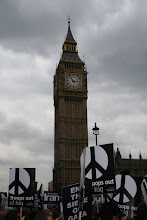One of the largest things that Obama has been saying over the course of his campaign is that he wants to surround himself not only with people he agrees with, but with those he doesn´t. Milton Friedman is a giant in economics, one with whom I completely disagree. His Chicago School, however, the one that supported the Pinochet coup and the dismantling of the Southeast Asian economies, is much more subdued than in the past. Goolsbee was trained at Yale and MIT, and was never a part of the major disaster capitalism movement at Chicago in the 70´s and 80´s. I think you would be hard pressed to find an economist who was not influenced my Friedman, which doesn´t mean they agree with everything he did. It would be similar to trying to find a physicist who was not influenced by Einstein or Feinman. Obama counts among his economic policy advisors a man named Joseph Stiglitz as well, who is a major critic of unfettered capitalism and the like.
Campaign contributions in the United States are a tricky thing. The hopeful thing about Obama is that a majority of his donations came from the people, the difference between the donations into the Obama campaign and the Mccain campaign are incredible. Every modern president has taken money from a slew of companies, like Goldman Sachs or Lehman. I agree with your statement that actions speack louder than words, but as far as Obama´s policy goes, it looks as though it will err towards the people rather than corporations. He favors ending the Bush tax cuts, which have caused the middle and lower class in America to actually make less money today than 8 years ago, and raising the capital gains tax.
|


No comments:
Post a Comment